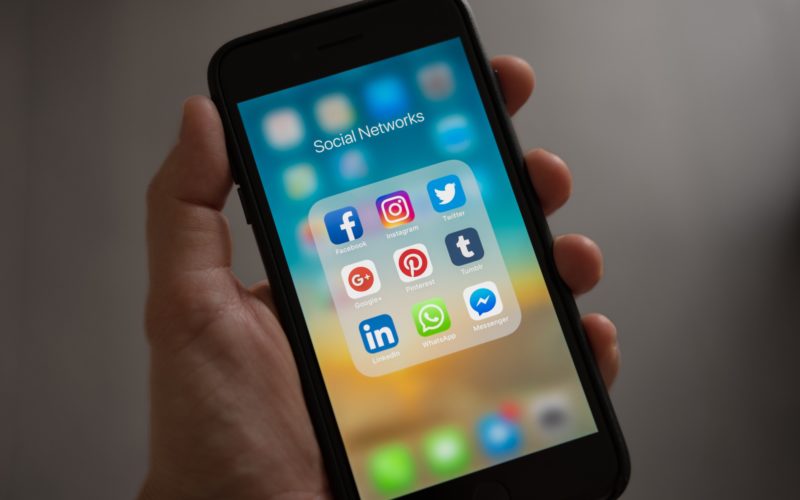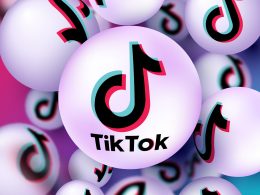The rising popularity of TikTok has simultaneously reshaped the music industry. Music publishers have expressed issues with TikTok’s practices relating to the platform’s insufficient compensation for artists, damaging use of artificial intelligence, and overall safety risks. In January 2024, this conflict ultimately caused Universal Music Group (“UMG”) to discontinue its license with TikTok and remove its catalog from the app.1[1] An Open Letter to the Artist and Songwriter Community – Why We Must Call Time Out on TikTok, UNIVERSAL MUSIC GROUP (Jan. 30, 2024), https://www.universalmusic.com/an-open-letter-to-the-artist-and-songwriter-community-why-we-must-call-time-out-on-tiktok/.. After the three-month-long licensing dispute, UMG reinstated the license on TikTok under new terms for its artists. 2[2]2 Universal Music Group and TikTok Announce New Licensing Agreement, UNIVERSAL MUSIC GROUP (May 1, 2024), https://www.universalmusic.com/universal-music-group-and-tiktok-announce-new-licensing-agreement/. Although the two parties have come to a mutual agreement, there is still concern as to whether TikTok will fully resolve these issues on an industry-wide level, specifically regarding its revenue-model. This article will describe the details of UMG’s licensing dispute and reinstatement, the impact it has had on other music publishers, TikTok’s financial impact on the music industry, and musicians’ desires to keep their music on the social media platform.
Why UMG Ended Its License with TikTok
On January 30, 2024, UMG released a public statement confirming that it would not renew its licensing agreement with the increasingly influential social media platform, TikTok. 3[3]3 Universal Music Group, supra note 1. UMG’s contract with TikTok was set to expire on January 31, 2024, and the two companies could not come to an agreement on three key issues: (1) “appropriate compensation for [its] artists,” (2) “protecting human artists from the harmful effects of AI,” and (3) “online safety for TikTok’s users.” 4[4]Id.
First, UMG claims that TikTok wants to center its platform around music without fairly compensating musicians for their work.5[5]Id. UMG’s chief executive officer (“CEO”), Lucian Grainge, proposed that TikTok implement UMG’s “Artist-Centric Model,” a new streaming royalty plan that has been adopted by several large global platforms.6[6]6 Thania Garcia, Universal Music Chief Lucian Grainge Praises Company’s Progress on AI, Artist-Centric Streaming Model in New Year’s Memo, VARIETY (Jan. 9, 2024), https://variety.com/2024/music/news/universal-lucian-grainge-ai-artist-centric-streaming-1235866258/. This economic model was created to “properly reward the artist-fan relationship and disincentivize fraud and gaming the system.”7[7]Id. Despite TikTok’s rapidly increasing user base and reliance on music-based content, however, TikTok has not adopted this economic model and continues to pay artists a “fraction of the rate” of other similar social media apps.8[8]8 Universal Music Group, supra note 1. To put this into perspective, UMG stated that TikTok accounts for 1% of the music company’s total revenue.9[9]Id.
Second, UMG alleges that TikTok promotes AI-generated music that interferes with UMG artists’ rights by “[diluting] the royalty pool for human artists.”10[10]Id. In fact, the platform is experimenting with an “AI Song” program that “create[s] songs based on prompts that users enter,” which consequentially encourages its users to make AI-generated music.11[11]11 Aisha Malik, TikTok is Experimenting with a Feature that Uses AI to Create Songs Based on Prompts, TECHCRUNCH (Jan. 19, 2024, 10:29 AM), https://techcrunch.com/2024/01/19/tiktok-is-experimenting-with-a-feature-that-uses-ai-to-create-songs-based-on-prompts/. Under section 115 of the Copyright Act, royalty payments are only available to a work’s copyright owners.12[12]12 Stuart D. Levi, Shannon N. Morgan, MacKinzie M. Neal, US Copyright Office Guidance on Royalty Eligibility of Musical Works Generated Using AI, OXFORD BUS. L. BLOG (Jun. 23, 2023), https://blogs.law.ox.ac.uk/oblb/blog-post/2023/06/us-copyright-office-guidance-royalty-eligibility-musical-works-generated#:~:text=The%20MLC%20Letter%20also%20signals,by%2Dcase%20basis%20and%20may (citing to 17 U.S.C. § 115). Since AI-generated music “lack[s] the necessary human authorship,” artists are not able to receive royalties.13[13]Id. Therefore, due to the increase in AI-generated music on TikTok, the value of artists’ music may decline and impact the streams from artists’ royalty-eligible work.14[14]14 Navigating the Legal Implications of AI-Generated Music & Copyright, UNCHAINED MUSIC (Jul. 14, 2023), https://www.unchainedmusic.io/blog-posts/navigating-the-legal-implications-of-ai-generated-music-copyright.
Third, UMG is concerned about TikTok users’ overall safety regarding negative uses of AI and bullying.15[15]Universal Music Group, supra note 1. Not only does the music publisher disapprove of the alleged “hate speech, bigotry, bullying and harassment” from TikTok users, but UMG also believes that the platform itself was strong-arming them “into accepting a deal worth less than the previous deal, far less than fair market value and not reflective of their exponential growth” by selectively removing songs from their developing musicians.16[16]Id.
In response, TikTok said that it is “sad and disappoint[ed] that [UMG] has put their own greed above the interests of their artists and songwriters,” and believes that their platform “serves as a free promotional and discovery vehicle for their talent.”17[17]TikTok Statement in Response to Universal Music Group, TIKTOK (Jan. 30, 2024), https://newsroom.tiktok.com/en-gb/tiktok-statement-in-response-to-universal-music-group-uk.
UMG’s License Reinstated on TikTok
Despite UMG and TikTok’s disagreements on the platform’s royalty compensation model, musicians’ rights from AI usage, and TikTok users’ safety, the two companies announced on May 1, 2024, that they have agreed upon a “new multi-dimensional licensing agreement that will deliver significant industry-leading benefits for UMG’s global family of artists,” and UMG ultimately reinstated the license to its music and publishing catalog on TikTok.18[18]Universal Music Group, supra note 2. Lucian Grainge stated that UMG’s new licensing agreement with TikTok “focuses on the value of music, the primacy of human artistry, and the welfare of the creative community.”19[19]Id. He further explained that UMG intends on collaborating with TikTok to “further the interests of [its] artists and songwriters and drive innovation in fan engagement while advancing social music monetization.”20[20]Id.Moreover, TikTok’s CEO, Shou Chew, recognized that music is an “integral part of [its] ecosystem” and is pleased that the two companies came to this agreement.21[21]Id. Chew emphasized the platform’s desire to “drive value, discovery, and promotion for all of UMG’s amazing artists and songwriters, and deepen their ability to grow, connect, and engage with the TikTok community.”22[22]Id.
As part of this new licensing agreement, UMG and TikTok will collaborate to develop “new monetization opportunities utilizing TikTok’s growing e-commerce capabilities and … on campaigns supporting UMG’s artists.” 23[23]Id. Additionally, in order for artists to see their potential growth, TikTok says they plan on “invest[ing] significant resources into building artist-centric tools,” such as the “Add to Music App” feature, improved analytics, and “integrated ticketing capabilities.”24[24]Id. Not only will these resources help compensate artists and increase their global fanbases, but they will also “strengthen online safety protections for artists and their fans.”25[25]Id. Lastly, TikTok also says they plan on removing unauthorized AI-generated music to “protect human artistry and the economics that flow to those artists and songwriters.”26[26]Id.
The Dispute’s Impact on Other Publishers’ Licenses with TikTok
Although UMG and TikTok have revived their licensing relationship under new terms, during their estrangement, the National Music Publishing Association (“NMPA”), the “trade association that represents all American music publishers and their songwriting partners,” followed UMG’s earlier decision to discontinue licensing music to TikTok.27[27]Our Mission, NAT’L MUSIC PUBLISHERS’ ASSOC., https://www.nmpa.org/mission/ (last visited Mar. 15, 2024). According to Billboard, the NMPA notified its members that it would not renew its licensing agreement that expired on April 30, 2024.28[28]Kristin Robinson, Independent Music Publishers Could Leave TikTok in May, BILLBOARD (Mar. 6, 2024), https://www.billboard.com/business/publishing/tiktok-lose-more-music-music-publishers-license-expires-1235624659/. While the three major music publishers (UMG, Sony Music Entertainment (“SME”), and Warner Music Group (“WMG”)) are members of the NMPA, they do not use the NMPA’s licensing agreements for their artists. Nevertheless, the NMPA licensing model is used by many independent music publishers whose artists will likely be affected by this decision.29[29]Id.
On March 8, 2024, the NMPA released a public statement recognizing that TikTok is heavily reliant on “popular and commercial music,” and the platform “needs to evolve their licensing model and embrace this fact and move forward appreciating the songwriters and artists as equal partners in TikTok’s success.”30[30]Id. For example, while TikTok’s current revenue-model compensates musicians based on the number of video creations, the NMPA advocates for a switch to the music industry’s established “per-stream rate,” which compensates artists based on the number of video views.31[31]Id.
On April 30, 2024, the NMPA’s licensing deal with TikTok lapsed and has not yet been renewed as of September 2024.32[32]32 Murray Stassen, The NMPA’s TikTok Deal has Officially Ended. What Does that Mean for Independent Publishers in the U.S.? MUSIC BUS. WORLDWIDE (May 1, 2024). Nevertheless, the association urges independent publishers to fully evaluate the situation and decide whether they want to directly negotiate a license to TikTok without the NMPA’s involvement.33[33]Id.
As for the other two major music publishers, SME and WMG, there is no indication that either company plans on discontinuing their licensing agreements with TikTok. In fact, days after UMG pulled its catalog from TikTok, WMG’s CEO, Robert Kyncl, announced that he remains happy with their negotiated licensing deal from last year, but he hopes for UMG and TikTok to come to an agreement to reinstate the license.34[34]34 Caitlin Huston, Warner Music CEO Says Their Deal With TikTok Is “Fair,” Believes Universal Impasse Will Be Resolved, THE HOLLYWOOD REPORTER (Feb. 8, 2024), https://www.hollywoodreporter.com/business/business-news/warner-music-ceo-tiktok-universal-impasse-1235819446/.
TikTok’s Low Payout in the Music Industry
While TikTok does not market itself as a music platform, music has remained a major aspect of the app’s content. Despite many TikTok videos and trends being centered around published songs, the social media platform does not contribute much revenue to the music industry. According to Music Business Worldwide, TikTok pays an estimated $400 million in royalties to music rightsholders. 35[35]35 Hugh McIntyre, Spotify Paid Out $9 Billion In 2023–How Does TikTok Compare?, FORBES (Feb. 9, 2024, 8:30 AM), https://www.forbes.com/sites/hughmcintyre/2024/02/09/spotify-paid-out-9-billion-in-2023how-does-tiktok-compare/?sh=56e2a15c405a. While this sounds like a high payout, Spotify compensated rightsholders more than 20 times that amount by paying $9 billion in music royalties in 2023.36[36]Id. Furthermore, Spotify is estimated to have 626 million monthly users while TikTok is estimated to have nearly twice that amount with over 1 billion monthly users.37[37]About Spotify, SPOTIFY, https://newsroom.spotify.com/company-info/ (last visited Aug. 23, 2024); Brian Dean, TikTok Statistics You Need to Know, Backlinko (Jul. 1, 2024), https://backlinko.com/tiktok-users. Even though TikTok is not technically classified as a music streaming platform, Spotify’s significantly larger royalties payout, while having nearly half the number of users, illustrates the inadequacy of TikTok’s direct revenue contribution to the music industry.38[38]38 Forbes, supra note 38.
TikTok’s current royalty revenue-model heavily contributes to this extreme disparity. According to the available data, TikTok pays artists about $0.03 per video created using their music, while Spotify pays artists between $0.003 and $0.005 per stream.39[39] Nadav Peleg, TikTok Royalties Calculator, SOUNDCAMPAIGN, https://soundcamps.com/tiktok-royalties-calculator/ (last visited Mar. 15, 2024).; How Much Does Spotify Pay Per Stream in 2024, DITTO MUSIC (Dec. 12, 2023), https://dittomusic.com/en/blog/how-much-does-spotify-pay-per-stream#:~:text=Spotify%20pays%20artists%20between%20%240.003,holders%20and%2030%25%20to%20Spotify. Since TikTok compensates based on the number of videos using the song, rather than the number of views or streams the song receives, rightsholders are inevitably going to be paid much less in comparison to a platform that uses the per-stream model explicitly requested by the NMPA. Although UMG says that their new licensing agreement with TikTok will deliver “improved remuneration” for artists, there is no specification as to the change made or whether they switched to the per-stream model for UMG artists.40[40]Universal Music Group, supra note 2.
Musicians Understanding the Power of TikTok
Even though TikTok does not directly compensate musicians as much as other platforms, TikTok can still have an extreme impact on artists’ careers. Despite receiving low royalty payments from TikTok, several “emerging and middle-class” UMG artists expressed concern about how the licensing discontinuation would impact their careers.41[41]41 Ari Herstand, Who’s Getting Hurt in the Universal Music-TikTok Standoff? Artists and Songwriters, Variety (Mar. 4, 2024, 12:26 PM), https://variety.com/2024/digital/opinion/universal-music-tiktok-battle-hurts-artists-1235929689/. For example, Conan Gray responded to a question about the TikTok and UMG controversy, saying, “I mean my career’s over for sure. I’m never going to have a hit song ever again at this rate.”42[42]Id. While this question was answered in a joking manner, it demonstrates that musicians recognize how powerful of a tool TikTok can be when promoting their music and encouraging fans to use their songs in viral trends. Other UMG artists have responded more seriously and touched on how UMG’s licensing termination with TikTok impacted their mental health and made them feel helpless.43[43]Id.
Conclusion
Ultimately, UMG’s reasoning for allowing its license to expire with TikTok demonstrates the publisher’s high regard for artists’ fair compensation, human authorship, and internet safety.44[44] Universal Music Group, supra note 1. However, as of now, it is uncertain whether the new monetization opportunities will guarantee that TikTok will fairly compensate UMG artists, especially considering it does not indicate how TikTok is changing its economic model for royalty payouts and does not necessarily apply to non-UMG artists.45[45]Universal Music Group, supra note 2. The proposed artist-centric tools will give an insight into the artist’s data and analytics, but these tools do not assure a higher compensation for the artists.46[46]Id. Furthermore, it is unknown whether TikTok will successfully remove all the AI-generated music from its platform, and if it does, it is also uncertain whether this will substantially impact UMG’s safety concern for TikTok users.47[47]Id.
While UMG and TikTok came to a consensus, UMG’s original concerns are not yet fully resolved on an industry-wide scale, as seen through the NMPA’s continued unwillingness to renew their license. Since TikTok’s revenue-model does not provide artists with a high royalty payout, independent music publishers must weigh the model with the app’s power to help build an artist’s career to ultimately determine whether they want to license their music on the platform.
Written by: Lauren Slippy
Lauren Slippy is a 2026 J.D. Candidate at Brooklyn Law School




